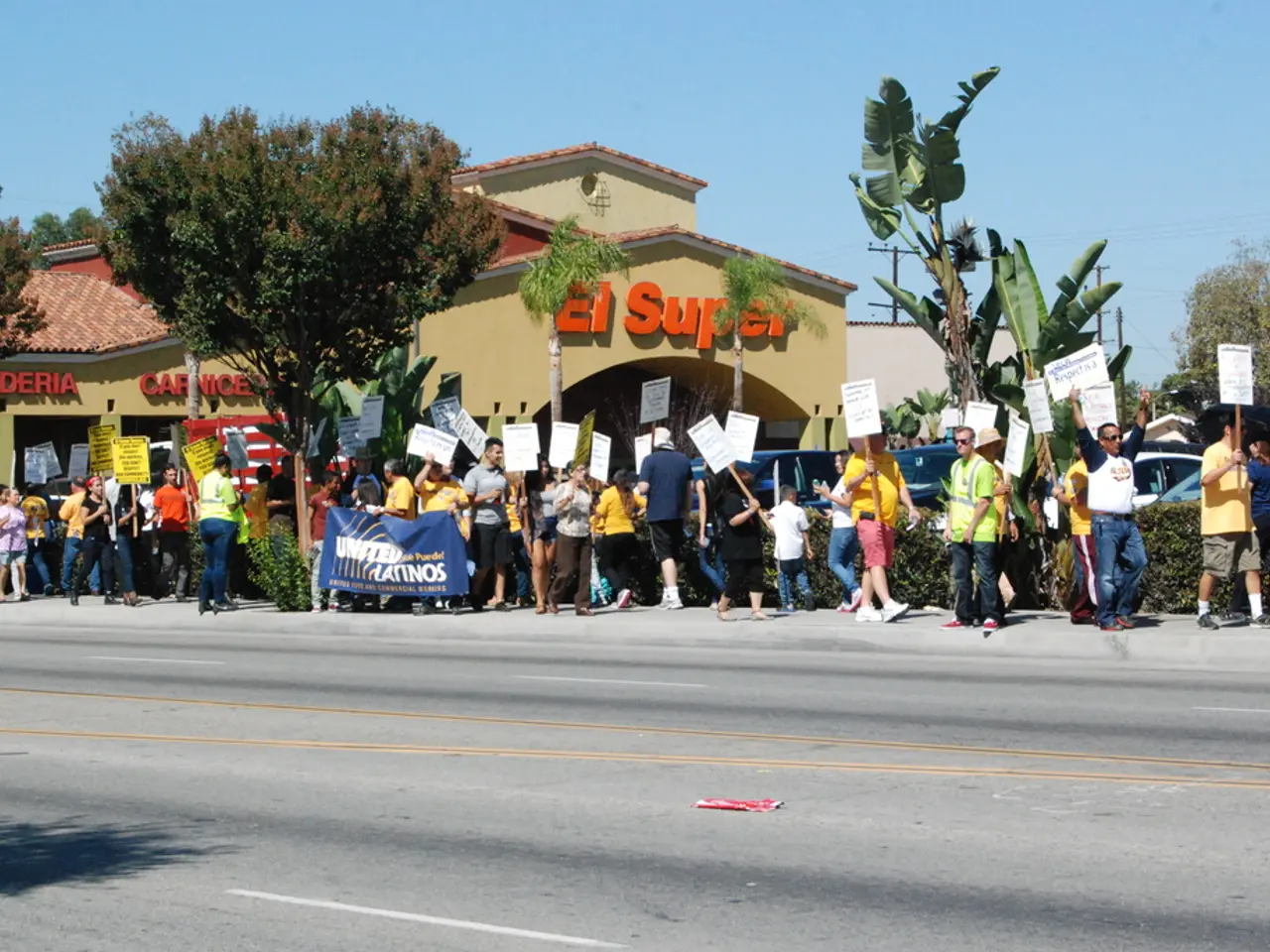Local election campaign in Dusseldorf: Greens and SPD aim to steer clear of events involving the AfD party participation
In a landmark decision, the German domestic intelligence agency (Federal Office for the Protection of the Constitution, BfV) classified the Alternative for Germany (AfD) party as a consistently far-right extremist group in May 2025. This classification was based on a detailed 1,100-page report that portrayed the AfD as a racist and anti-Muslim organization with anti-democratic goals.
The classification allows German authorities to monitor the AfD more closely, restrict its public funding, and consider bans or legal consequences for party members, particularly barring them from jobs in civil service, police, education, or the military in some federal states. The state branches of AfD in Brandenburg, Saxony, Saxony-Anhalt, and Thuringia have also been labeled similarly by regional intelligence agencies.
This decision has significantly polarized political discussions in Düsseldorf and Germany as a whole. AfD leaders denounce the decision as politically motivated persecution and a blow to democracy, while mainstream parties and officials argue that it is a necessary step to defend the constitutional order against anti-democratic extremism.
The Green party in Düsseldorf, under the leadership of Clara Gerlach, has taken a firm stance against sharing a platform with the AfD. The SPD in Düsseldorf echoes this sentiment, viewing the AfD as the opposite of Düsseldorf's values, an official right-wing extremist organization, and a breeding ground for hate, incitement, and contempt for democracy.
Consequences for political discourse in Düsseldorf include intensified debates about the limits of free speech versus combating extremism, efforts to exclude AfD members from public employment, possible legal proceedings against the party, and discussions about a nationwide ban. The polarization between AfD supporters and opponents complicates cooperation in municipal councils and elections.
Clara Gerlach, the Green candidate for mayor in Düsseldorf, has decided not to participate in discussions with the AfD during the municipal election campaign. The SPD in Düsseldorf has made a similar commitment, reiterating its demand for a ban on the AfD following the new assessment by the domestic intelligence agency.
As the municipal election approaches, it is clear that the AfD’s classification as far-right extremist marks a significant shift that strengthens state measures against the party while fueling ongoing debates about political freedom and extremism in Germany.
- The classification of the Alternative for Germany (AfD) party as a far-right extremist group due to its racism, anti-Muslim stance, and anti-democratic goals has spurred debates about policy-and-legislation regarding war-and-conflicts, crime-and-justice, and general-news, as German authorities consider bans or legal consequences for party members.
- As a response to the AfD's classification, the Green party in Düsseldorf and the SPD have taken firm stances against sharing a platform with the party, viewing it as a breeding ground for hate, incitement, and contempt for democracy, which potentially affects policies in civil service, police, education, or the military.
- The polarization and debates instigated by the classification have broadened discussions about the balance between free speech and combating extremism, with implications for the municipal elections, migration policies, and the overall political landscape in Düsseldorf and Germany.








